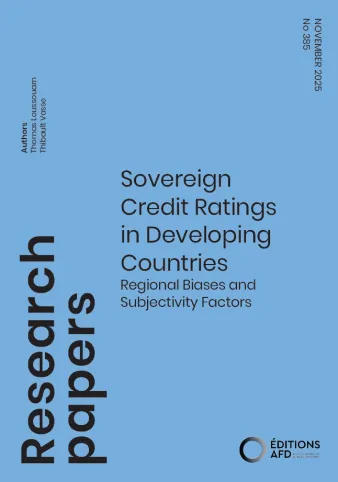Share the page
Sovereign Credit Ratings in Developing Countries Regional - Biases and Subjectivity Factors
Published on

Sovereign credit ratings play a critical role in the international financial system and have a tangible impact on countries’ fiscal, economic, and development trajectories. Nevertheless, the activity of credit rating agencies continues to generate debate and controversy and has become increasingly criticized by emerging and developing countries (EDCs). What are the regional disparities in sovereign ratings, and if they exist, are they justified? This study provides an overview of the sovereign rating activities and methodologies of the three main U.S.-based agencies – Fitch, Moody’s, and S&P – and analyzes major trends in sovereign ratings since the 1990s. We find that, in general, EDC ratings are lower and less stable than those of advanced economies. Likewise, disparities in default rates among equally rated sovereigns raise questions about the ability of rating agencies to correctly assess sovereign risk in certain cases. This preliminary analysis may suggest that regional rating biases exist at first glance, although such biases are inherently difficult to measure given the available data and the methodologies used by the agencies. We then review the literature on rating biases, which reveals that systematic biases can indeed affect sovereign ratings, particularly biases related to development levels, domestic biases and those related to cultural, economic or geopolitical proximity, as well as those arising from information asymmetries and economic conflicts of interest. Across these factors, clear disparities exist between regions. If these biases are confirmed, it is likely that EDCs are particularly disadvantaged. We conclude with a review of recommendations aimed at mitigating these risks namely by reducing dependence on external ratings, updating rating methodologies to promote greater transparency, granularity and comprehensiveness, strengthening the international financial governance framework, and questioning the proposal of a multilateral public rating agency. Development actors also have a key role to play by contributing to the rating process through improved data availability, supporting EDCs’ capacity to engage with private investors and rating agencies, and mobilizing instruments to reduce risk premiums.
Useful Information
-
Authors
-
Thomas Loussouarn, Thibault Vasse
-
Edition
-
385
-
Number of pages
-
39
-
ISSN
-
2492 - 2846
-
Collection
-
Research Papers
-
Languages
-
Français
-
Other languages
